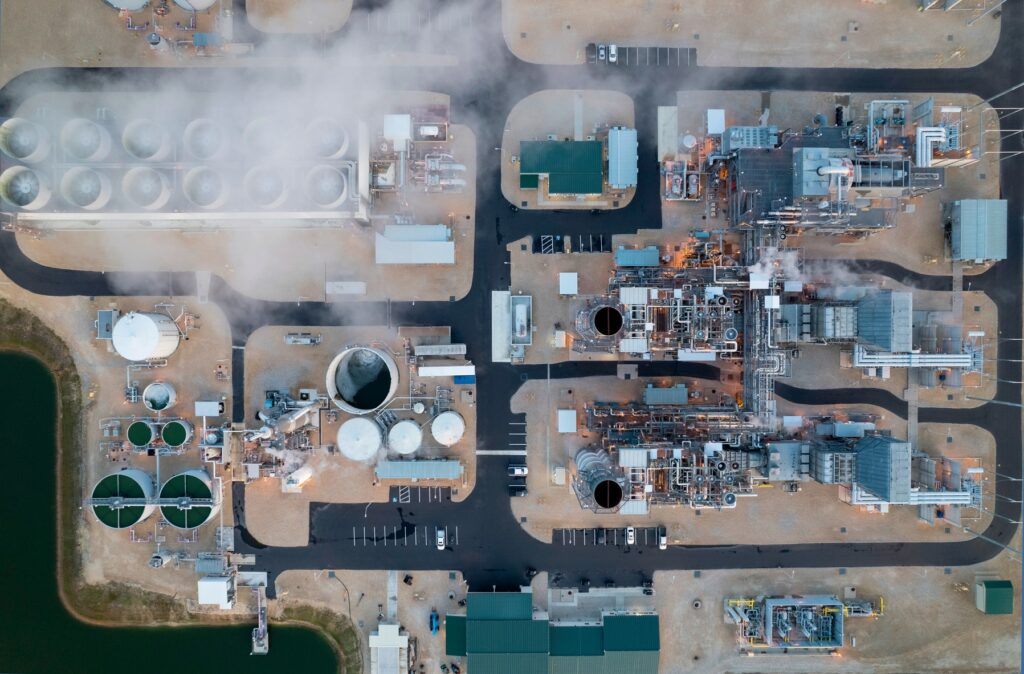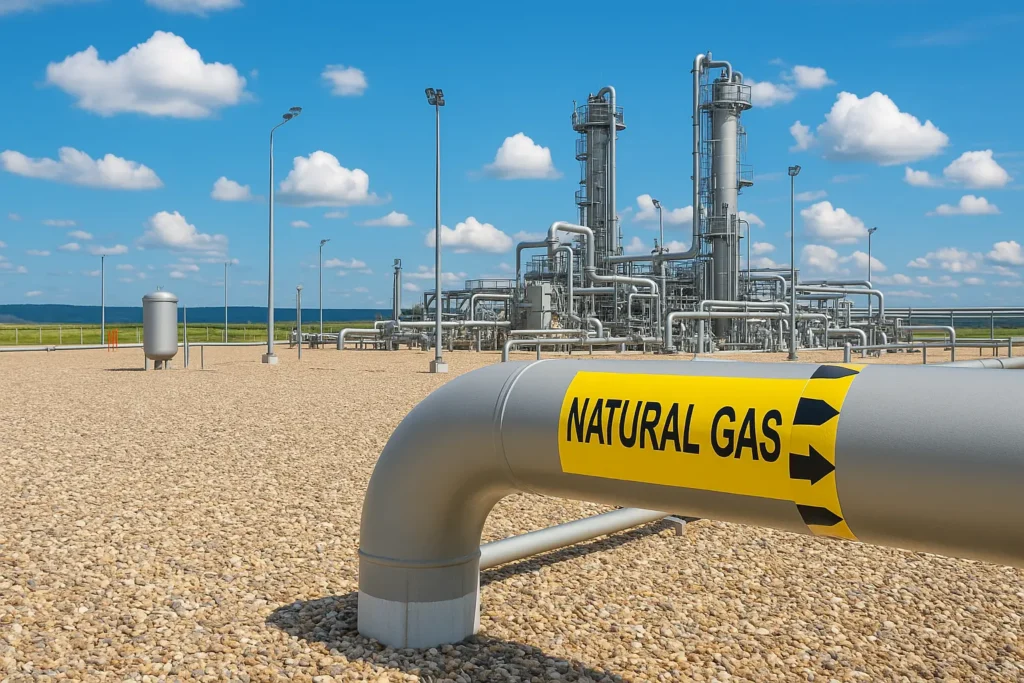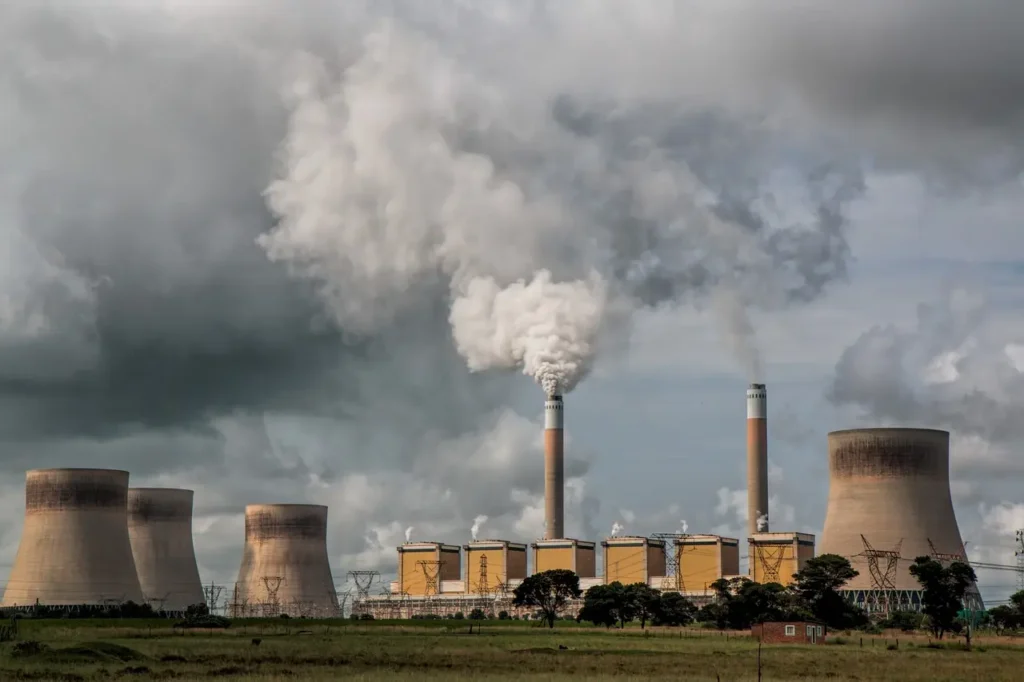How Many Natural Gas Plants Are in Texas
3 minute readHow many natural gas plants operate in Texas? How many more are proposed amid surging energy demand?
Home > Learning Center > Energy Production > The Pros and Cons of Natural Gas
3 minute read • Last update January 2025

Globally, and particularly within the United States, natural gas stands as a plentiful resource. Thanks to recent discoveries and advancements in extraction techniques, there has been a notable surge in shale gas development, propelling the United States to the forefront as the leading global producer of natural gas.
The U.S. Energy Information Administration has assessed proven natural gas reserves at a substantial 6,800 trillion cubic feet. While undeniably abundant, efficient, and cost-effective as an energy source, the utilization of natural gas comes with its own set of advantages and disadvantages. Continue reading to explore some of the pros and cons associated with the use of natural gas.
| Pros of natural gas | Cons of natural gas |
|---|---|
| Reduced environmental impact compared to other fossil fuels | Environmental concerns such as methane leaks and fracking |
| Power generation efficiency and economic viability | Geopolitics and energy security |
| Versatility of applications beyond power generation | Uncertainty of future role as renewables increase |
| Natural gas is an abundant resource | Non-renewable source of energy |
| Existing infrastructure makes it easy to harness | Price volatility due to weather |
| Easier to transport than other fossil fuels | |
| Pairs well with renewable energy at the grid level |
Natural gas consumption is growing at an average rate of 2.1% per year in the United States as more and more Americans discover its benefits, which include:
Compared to other fossil fuels like coal and oil, natural gas has a lower environmental impact. When burned for power generation, natural gas produces fewer greenhouse gas emissions, including carbon dioxide (CO2) and air pollutants such as sulfur dioxide (SO2) and nitrogen oxides (NOx). It helps to reduce air pollution and mitigate the effects of climate change. Natural gas emits about 49% less carbon dioxide (CO2) than coal and about 30% less CO2 than oil.
Natural gas power plants are highly efficient in converting fuel into electricity. They have a higher energy conversion rate compared to coal-fired power plants, resulting in less wasted energy. The efficiency of natural gas power generation helps in reducing fuel consumption and operating costs, making it an economically viable option.
Natural gas is a versatile energy source with various applications beyond power generation. It’s widely used for heating homes, buildings, and industrial processes. It’s also utilized as a fuel for cooking, water heating, and even in some transportation sectors as an alternative fuel.
Natural gas reserves are abundant, and new sources continue to be discovered. This ensures a stable and consistent supply for electricity generation.
Many regions already have a well-established infrastructure for natural gas extraction, transportation, and distribution. Utilizing existing infrastructure can make it easier and more cost-effective to integrate natural gas into the energy mix.
Natural gas is generally easier to transport compared to some other forms of energy, particularly in comparison to bulkier and heavier fossil fuels like coal or oil.
When it comes to the generation of electricity, natural gas is a powerful tool alongside renewable energy sources such as wind and solar because it is easily turned on and off, and scaled. When the wind isn’t blowing and sun isn’t shining, natural gas saves the day, filling in the gaps that the grid demands.
While natural gas offers advantages, it also faces challenges and controversies that need to be addressed.
One of the primary environmental concerns associated with natural gas is methane leaks. Methane is a potent greenhouse gas, and its release during natural gas production and distribution can contribute to climate change. Advancements in tracking and detecting leaks are helping reduce the impact of this issue.
The extraction method of hydraulic fracturing, or fracking, has raised concerns about water contamination and potential damage to ecosystems. Although, water contamination has never been prevalent. Compared to other fossil fuels, like oil and coal, the damage to the environment is much less.
The reliance on natural gas from specific regions can create geopolitical challenges and energy security issues. Countries heavily dependent on natural gas imports may face vulnerability to supply disruptions or price fluctuations. Diversification of energy sources and development of domestic resources can help mitigate these risks. It is important to point out that in comparison to oil, the geopolitical risk of natural gas is much lower.
While natural gas produces fewer emissions compared to other fossil fuels, It’s still a carbon-intensive energy source. The challenge lies in balancing the need for energy security with the goal of reducing greenhouse gas emissions and achieving a sustainable energy future. Carbon capture and storage technology is readily advancing and is a strong mechanism to reduce and eventually eliminate the carbon emissions of natural gas energy.
Natural gas is a finite, non-renewable resource. While current reserves may last for several decades, dependence on non-renewable resources raises concerns about long-term energy sustainability.
The price of natural gas can be volatile, influenced by weather patterns. This volatility can impact electricity prices for energy consumers.
Javier Hinojosa, Vice President of Retail Power at BKV Energy, has over fifteen years of management experience in M&A, consulting, supply chain, technology, and operations. He is responsible for overseeing all aspects of BKV Energy's business, from finance and brand development to customer service and go-to-market strategy.

How many natural gas plants operate in Texas? How many more are proposed amid surging energy demand?

Get $50 off your electric bill!
Use code BKVEJOINUS50
Enter your zip code to shop BKV Energy's affordable, fixed-rate Texas electricity plans. Use the promo code for $50 off your electric bill.